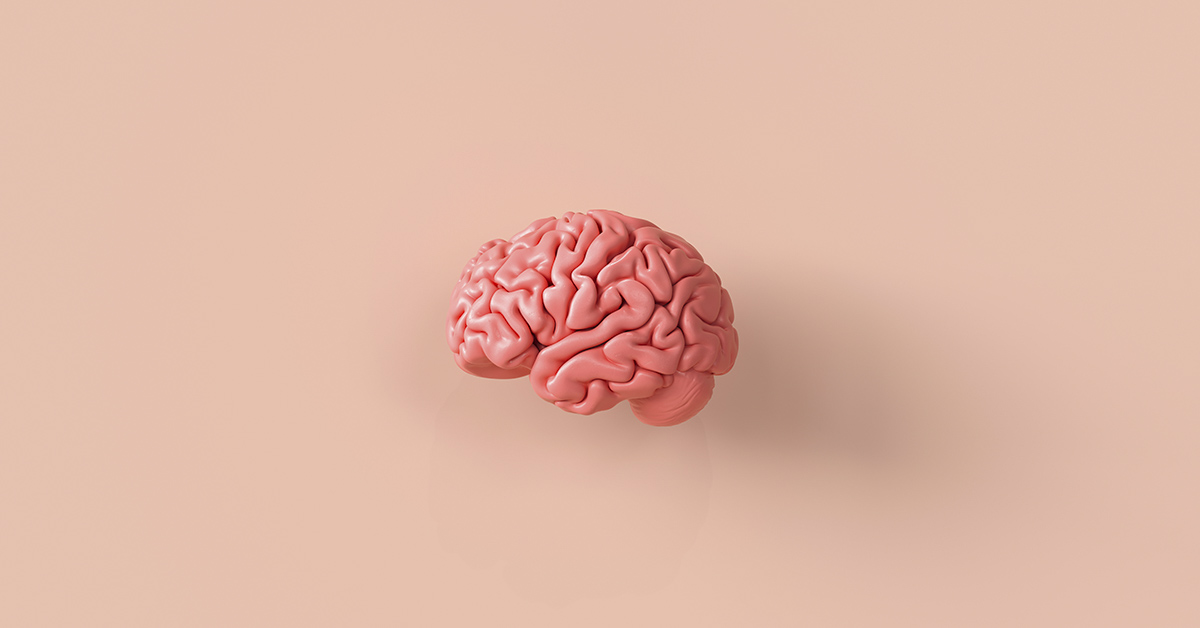Dementia refers to a group of neurodegenerative illnesses that are associated with a significant cognitive decline, including in areas such as memory, coordination, mood, and behavior. The most common form of dementia is Alzheimer’s, with approximately 50% of individuals over the age of 85 having Alzheimer’s. While there is no cure for dementia-related diseases, researchers have noted that modifiable risk factors are the most common causes of dementia.
Challenging modifiable risk factors such as changing lifestyle choices, quitting smoking and adopting healthier diets are paramount to preventing the development of dementia. Actively combat dementia by making lifestyle changes, giving up smoking, and choosing brain-boosting foods. This guide explores 10 evidence-backed superfoods that promote brain health, explaining how they work and providing practical ways to include them in your daily routine. While credible scientific research supports the information, consult your healthcare provider for personalized recommendations.
1. Extra Virgin Olive Oil

Olive oil is a natural oil extracted from grinding the fruit of the olive tree (Olea europaea), native to the Mediterranean region. It has been used for thousands of years in cooking, medicine, and cosmetics globally. It is ingrained within Mediterranean diets renowned for their numerous health benefits, serving as their main source of fat. Extra virgin olive oil (EVOO) is the highest quality, cold-pressed to preserve not only its rich flavor but its nutrient-dense bioactive compounds. Its culinary uses range from salad dressings and drizzling over dishes to low and medium-heat cooking.
How Olive Oil Helps Reduce Dementia Risk

Olive oil’s brain-protective effects stem from its high content of monounsaturated fats and phenolic compounds. Researchers have conducted laboratory research, focusing on individual phenolic compounds in olive oil. However, while there is still a lack of concrete evidence from human trials, the results from laboratory research have yielded some promising results.
Olive oil’s phenolic compounds may reduce pathological tau and amyloid-beta proteins, primary markers for Alzheimer’s disease. A unique compound in EVOO called oleocanthal exhibits anti-inflammatory and antioxidant properties, potentially helping to clear amyloid, reducing dementia risk. Monounsaturated fats maintain neuronal cell membrane fluidity, facilitating effective communication between brain cells.
Cognitive Benefits of Olive Oil in Your Diet

Regular consumption of extra virgin olive oil is linked to slower cognitive decline and a lower risk of dementia. The PREDIMED study demonstrated that participants following a Mediterranean diet supplemented with EVOO had a 35% reduced risk of cognitive impairment compared to controls. Laboratory research confirms that olive oil compounds protect brain tissue by reducing inflammation and oxidative damage, supporting memory and better brain health.
Research Insights and Considerations on Extra Virgin Olive Oil

While observational studies strongly support olive oil’s neuroprotective benefits, some critics note that benefits may partly reflect the overall Mediterranean lifestyle rather than just olive oil alone. More randomized controlled trials are needed to isolate its effects. Additionally, cooking methods matter-high heat can degrade beneficial compounds, so using EVOO for dressings or gentle cooking is recommended. Nonetheless, olive oil remains one of the most well-established foods for reducing dementia risk.
2. Nuts (Walnuts, Almonds)
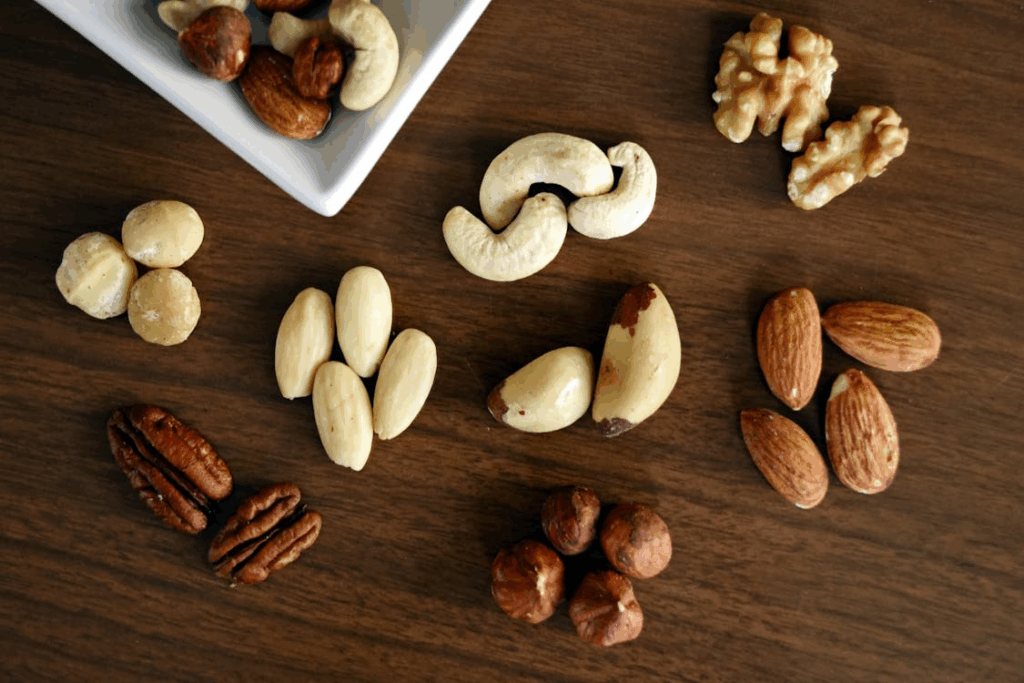
Nuts are the edible seeds of various trees and plants, including walnuts, almonds, hazelnuts, and more. They have nourished humans for millennia, originating from regions across Asia, the Middle East, and the Mediterranean. Today, people consume nuts globally in various forms: they snack on them, sprinkle them on salads and oatmeal, or use them as ingredients in both sweet and savory dishes. Their portability and nutrient density, especially their high vitamin E content, make nuts a popular choice for healthy eating.
How Nuts Help Reduce Dementia Risk

Nuts, especially walnuts and almonds, are rich in vitamin E, omega-3 fatty acids, antioxidants, and polyphenols. Vitamin E is known to protect neurons from oxidative damage, while omega-3s support the structure and function of brain cell membranes. The anti-inflammatory and antioxidant properties of these nutrients help reduce chronic inflammation and oxidative stress, which increases the risk of developing neurodegenerative diseases like dementia.
Cognitive Benefits of Including Nuts in Your Diet
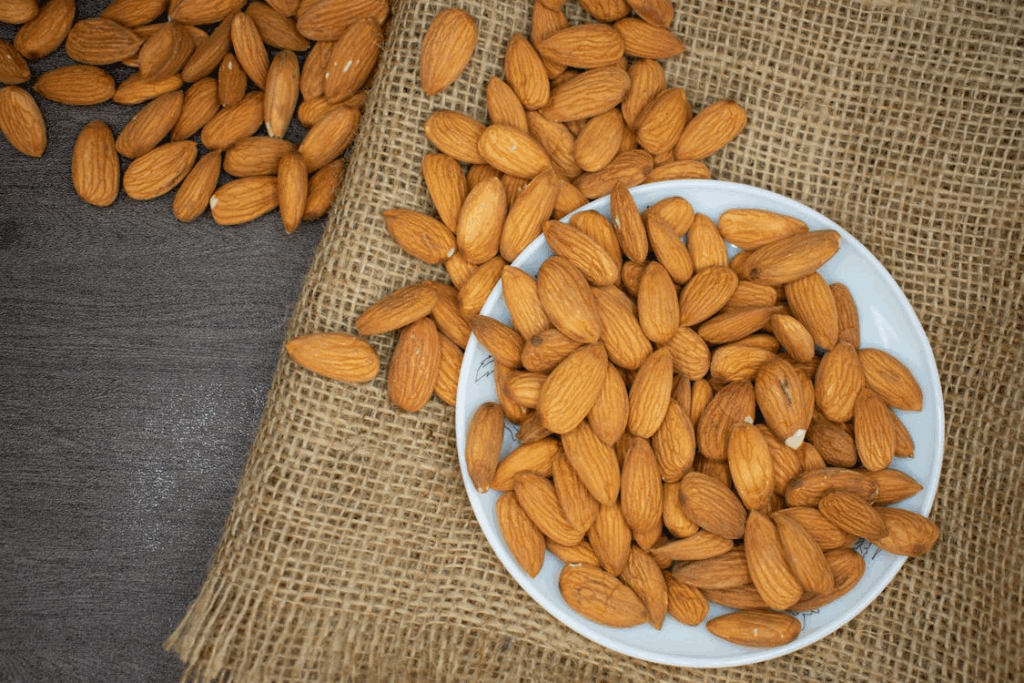
Regular nut consumption has been linked to better memory, faster processing speed, and general improved cognitive performance. The Nurses’ Health Study found that women who consumed more nuts had better long-term cognitive function. The consumption of nuts also helps regulate blood sugar and reduce inflammation throughout the body, further supporting brain health.
Research Insights and Considerations on Nuts
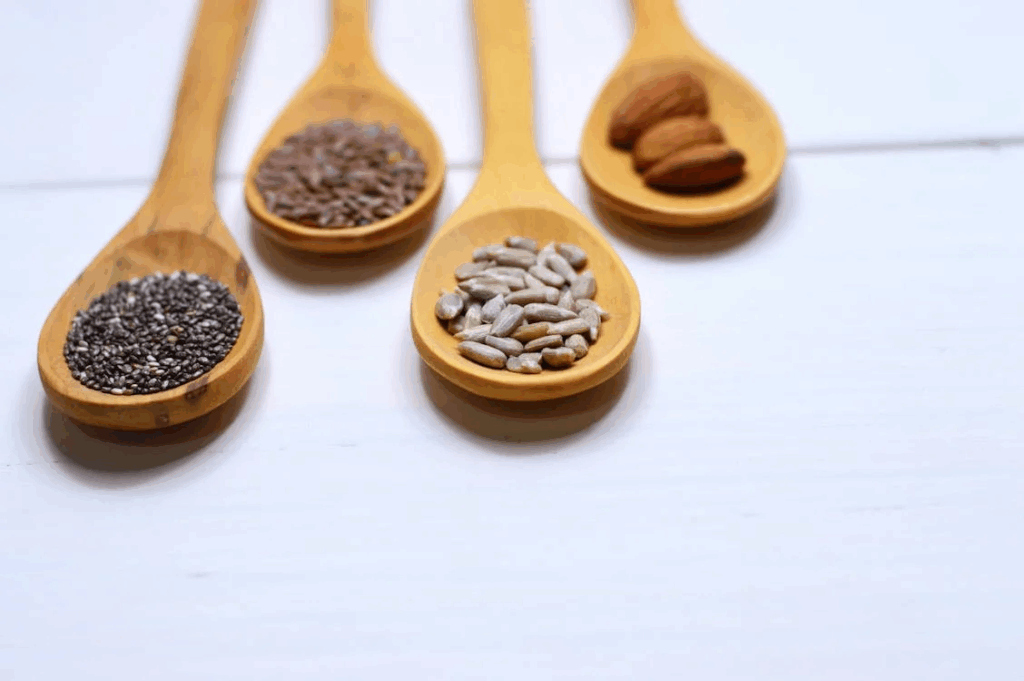
While observational studies strongly support the cognitive benefits of nuts, some critics note that nut eaters may also follow generally healthier lifestyles. This could contribute to the observed positive effects. More randomized controlled trials are needed to isolate the impact of nuts alone. However, the consistent findings across large populations make nuts a promising component of diets aimed at reducing dementia risk.
3. Berries (Blueberries, Strawberries)
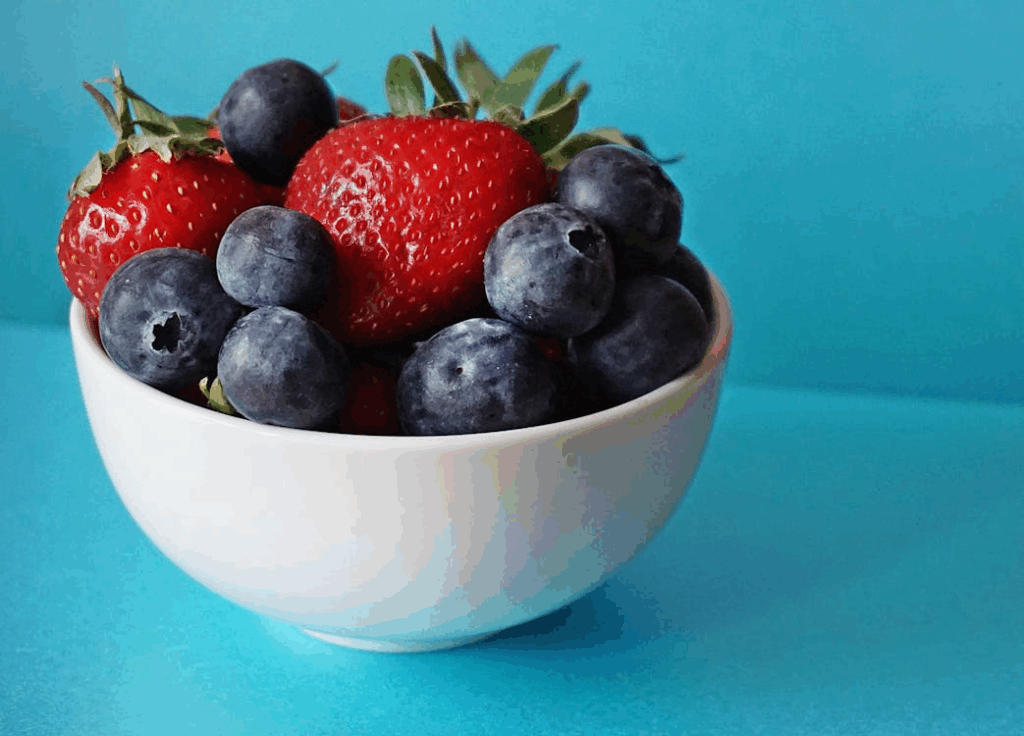
Berries are small, colorful fruits that grow on shrubs and vines in temperate regions across the globe. Popular varieties like blueberries and strawberries originated in North America and Europe, while blackberries and raspberries grow worldwide. People have enjoyed berries for centuries not only for their sweet and tart flavors but also for their nutritional value. Today, they eat berries fresh, frozen, or dried, incorporating them into cereals, smoothies, desserts, and salads.
How Berries Help Reduce Dementia Risk

Berries are rich in anthocyanins, flavonoids, and other antioxidants that combat oxidative stress and inflammation. These compounds can cross the blood-brain barrier, directly protecting neurons from damage and enhancing communication between brain cells. Animal and human studies indicate that regular berry consumption may improve neuronal signaling, promote neurogenesis, and increase blood flow to the brain, all of which are crucial for maintaining cognitive function as we age.
Cognitive Benefits of Including Berries in Your Diet

Multiple large-scale studies have demonstrated that people who eat berries regularly experience slower cognitive decline and better memory performance. A study of over 16,000 women found that those who consumed one to two servings of berries per week delayed cognitive aging by up to 2.5 years compared to those who did not eat berries. Clinical trials have shown that both blueberries and strawberries can improve various aspects of memory, attention, and executive function in older adults and those at risk for dementia. These benefits are attributed to berries’ ability to reduce the accumulation of harmful proteins in the brain.
Research Insights and Considerations on Berries

Researchers recognize the promising evidence supporting berries as a food to reduce dementia risk but caution that more long-term, controlled human studies must clarify the optimal types, amounts, and timing of berry consumption for brain health. Scientists continue to explore the exact interactions between berry compounds and their neuroprotective potential. It is likely a combination of nutrients working together rather than a single compound acting independently.
4. Leafy Greens

Spinach originated in ancient Persia, kale traces its roots to the eastern Mediterranean and Asia Minor, and collard greens also come from the eastern Mediterranean. Farmers have cultivated these nutrient-dense leafy greens for thousands of years.
These greens are constant in numerous cuisines worldwide, valued for their versatility, ease of growth and health benefits. Leafy greens produce abundant, consumable plant matter, making them an easy and affordable source of nutrition for lower-income or rural communities. They are consumed raw in salads, blended into smoothies, sautéed as side dishes, or added to soups and stews, making them easy to incorporate into any diet.
How Leafy Greens Help Reduce Dementia Risk?
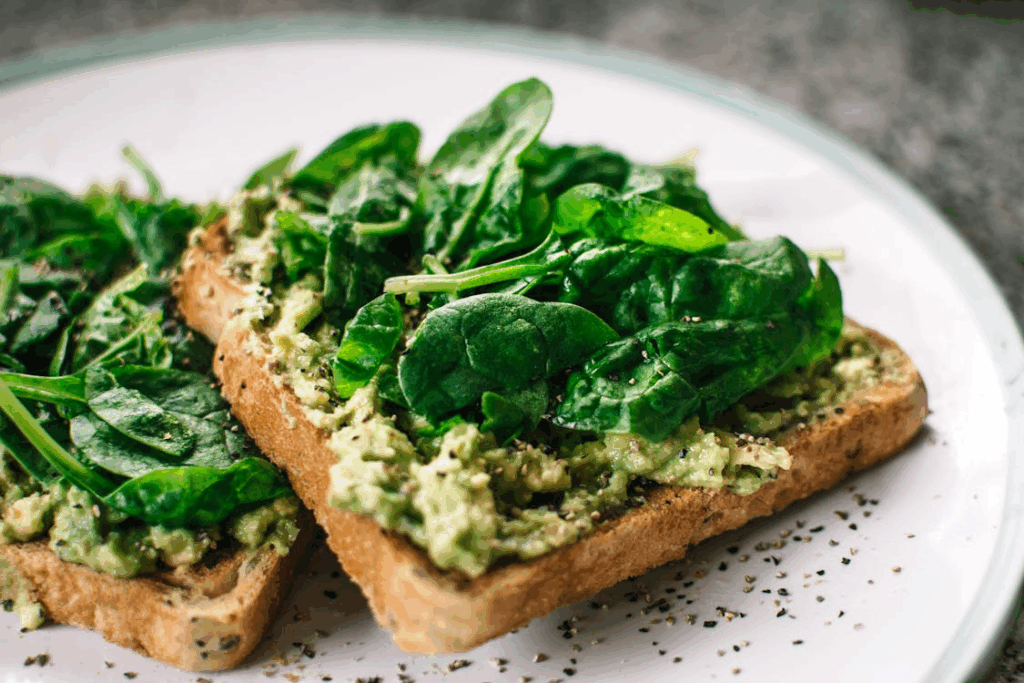
Leafy greens are packed with brain-protective nutrients including vitamin K, lutein, beta-carotene, and folate. Vitamin K is important for the formation of sphingolipids, which are essential components of brain cell membranes. Lutein and beta-carotene act as antioxidants, protecting brain cells from oxidative stress and inflammation. Folate helps lower homocysteine levels, a compound linked to the increased risk of dementia and Alzheimer’s disease. These nutrients work together to support neural health and slow age-related brain changes.
Cognitive Benefits of Including Leafy Greens in Your Diet

Consuming leafy greens regularly has been linked to slower cognitive decline and a reduced risk of dementia. A study published in Neurology found that adults who ate one to two servings of leafy greens daily had cognitive abilities equivalent to being 11 years younger than those who rarely consumed them. Other research highlights that older adults who consume higher amounts of these vegetables have better memory, processing speed, and overall brain function.
Research Insights and Considerations on Leafy Greens

The evidence supporting leafy greens as foods to reduce dementia risk is robust, but healthcare professionals suggest consuming leafy greens as part of a well-rounded diet to improve the neuroprotective effects. Nonetheless, the consistent link between leafy green consumption and better cognitive health makes them a valuable part of any brain-healthy diet.
5. Fatty Fish

Salmon, mackerel, and sardines are fatty, oily fish species that live in both freshwater and marine environments worldwide. Salmon primarily comes from the North Atlantic and Pacific Oceans, mackerel thrives in temperate seas, and sardines commonly inhabit the Mediterranean and Atlantic waters. These fish have been part of cuisines in coastal cultures for centuries. People commonly bake, grill, can, or enjoy fatty fish fresh, making them accessible and convenient sources of nutrition.
How Fatty Fish Help Reduce Dementia Risk

Fatty fish are rich in omega-3 polyunsaturated fatty acids (PUFAs), particularly docosahexaenoic acid (DHA), which are important building blocks of brain cell membranes. DHA supports neuronal integrity, synaptic plasticity, and neurotransmission, all important mechanisms in brain function. Moreover, omega-3s reduce neuroinflammation and prevent the accumulation of amyloid-beta plaques which are distinct markers of Alzheimer’s disease. These compounds help protect brain cells from damage and promote neural repair, subsequently reducing dementia risk.
Cognitive Benefits of Including Fatty Fish in Your Diet

Regularly consuming fatty fish slows cognitive decline and improves memory retention in older adults. The Framingham Heart Study demonstrated that higher blood levels of docosahexaenoic acid (DHA) correlated with a 47% reduced risk of developing dementia. DHA is a type of omega-3 fat, found abundantly in fatty fish. It may help in reducing inflammation and subsequently decreasing the risk of developing dementia.
Eating two servings of fatty fish per week provides sufficient omega-3s to support brain health without significant mercury exposure concerns. Additionally, fatty fish supply other brain-supportive nutrients such as vitamin D and selenium, which work in tandem with omega-3s to maintain cognitive function.
Research Insights and Considerations on Fatty Fish

Randomized controlled trials have produced mixed results, possibly due to differences in dosage, duration, and population studied. Concerns about mercury and pollutant exposure have led to recommendations favoring smaller fish like sardines, which accumulate fewer toxins. Cooking methods also matter; baking or grilling preserves omega-3 content better than deep-frying.
6. Turmeric (Curcumin)

Turmeric is a vibrant, yellow spice which comes from the root of the Curcuma longa plant. It grows natively in South Asia and especially India. Cooks and healers alike have relied on turmeric as a fundamental part of Indian, Southeast Asian, and Middle Eastern cuisines and traditional medicine for centuries.
Its active compound, curcumin, gives turmeric both its signature color and its reputation for medicinal potency. Turmeric is commonly used in cooking to flavor curries, rice, and vegetables. However, there has been a recent rise in its popularity for use in wellness drinks such as golden milks or smoothies.
How Turmeric Helps Reduce Dementia Risk

The active compound in Turmeric, curcumin is noted for its powerful anti-inflammatory and antioxidant effects. Curcumin can cross the blood-brain barrier, allowing it to act directly on brain tissue. Studies show that curcumin reduces neuroinflammation and oxidative stress. Researchers have also found that curcumin helps clear amyloid-beta plaques.
Cognitive Benefits of Including Turmeric in Your Diet

Clinical trials suggest that curcumin supplements can improve memory, attention, and even mood in older adults. In a study published in the American Journal of Geriatric Psychiatry, researchers tracked participants over 18 months and found that daily curcumin intake led to significant gains in memory and attention compared to a placebo group. Epidemiological data also reveal that regions with high turmeric consumption, such as India, report lower rates of Alzheimer’s than many Western countries.
Research Insights and Considerations on Turmeric

Despite these promising results, curcumin’s natural bioavailability remains low; the body absorbs only a small fraction when turmeric is consumed alone. However, adding black pepper, which contains piperine, can boost absorption. While animal studies and small-scale human trials show real benefits, scientists agree that researchers still need to conduct large, long-term trials to confirm curcumin’s role in dementia prevention and treatment. Even so, turmeric’s safety, versatility, and potential to protect the brain make it a feasible and beneficial addition to any diet aimed at reducing dementia risk.
7. Seeds
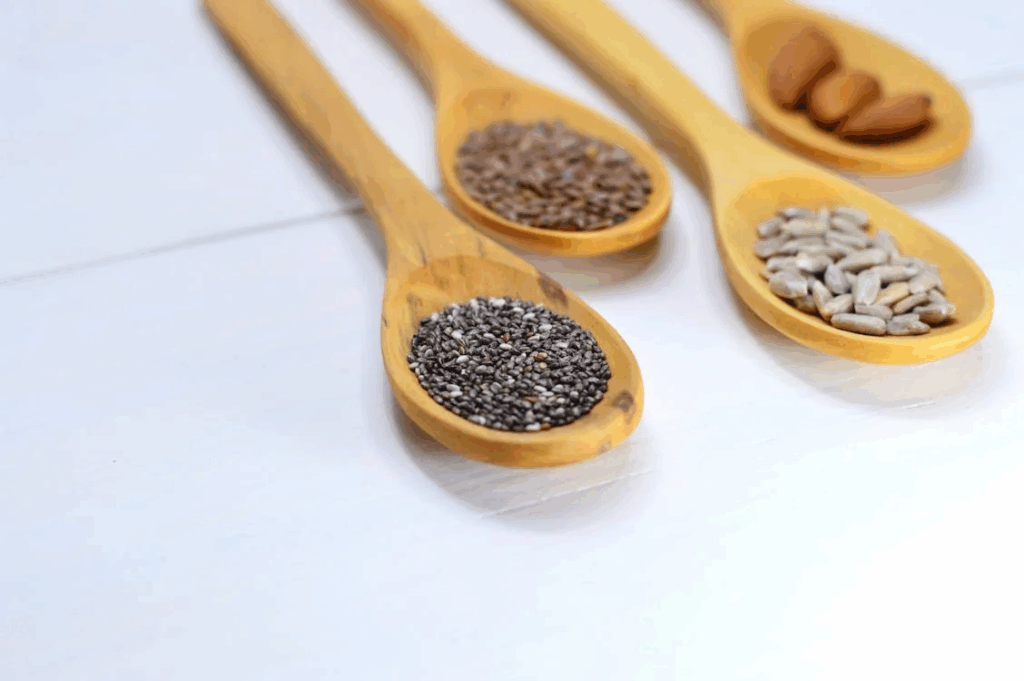
Seeds like flaxseeds, chia, and pumpkin seeds have provided nourishment for humans over centuries across various cultures. Flaxseeds originated in the Mediterranean and Near East, prized since ancient times for their nutritional and medicinal properties. Chia seeds come from Central and South America, historically consumed by Aztec and Mayan civilizations.
Pumpkin seeds, native to North America, have long been eaten as a healthy, nutrient-rich snack. These seeds appear in diets globally, currently used in everything from breakfast bowls and smoothies to baked goods and salads.
How Seeds Help Reduce Dementia Risk
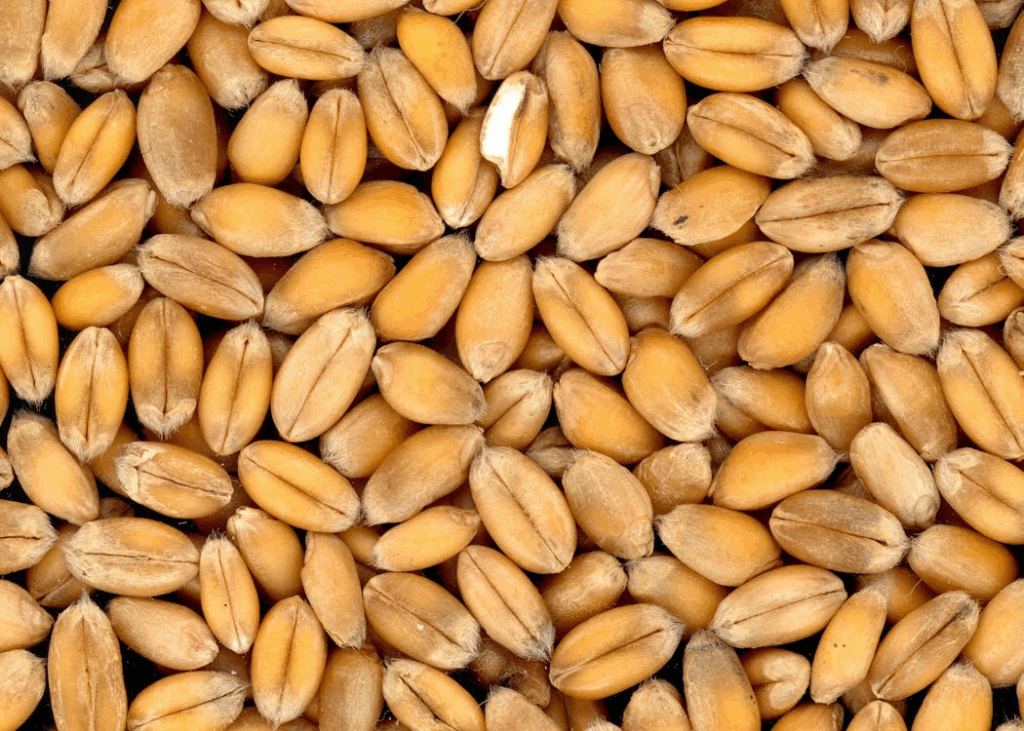
Seeds deliver a nutrient-dense mix of neuroprotective nutrients. Flaxseeds and chia seeds provide alpha-linolenic acid (ALA), a plant-based omega-3 fatty acid essential for repairing brain cell membranes and reducing inflammation. Pumpkin seeds supply zinc and magnesium, minerals important for neurotransmitter function, learning, and memory formation.
Certain seeds like sesame contain sesamin, which protects neurons from damage caused by free radicals. Sunflower seeds offer vitamin E, an antioxidant that preserves mental function. By stabilizing blood sugar and reducing inflammation, seeds create an optimal environment for brain health.
Read More: Boosting Magnesium Levels Could Slow Brain Aging and Lower Dementia Risk, Research Shows
Cognitive Benefits of Including Seeds in Your Diet
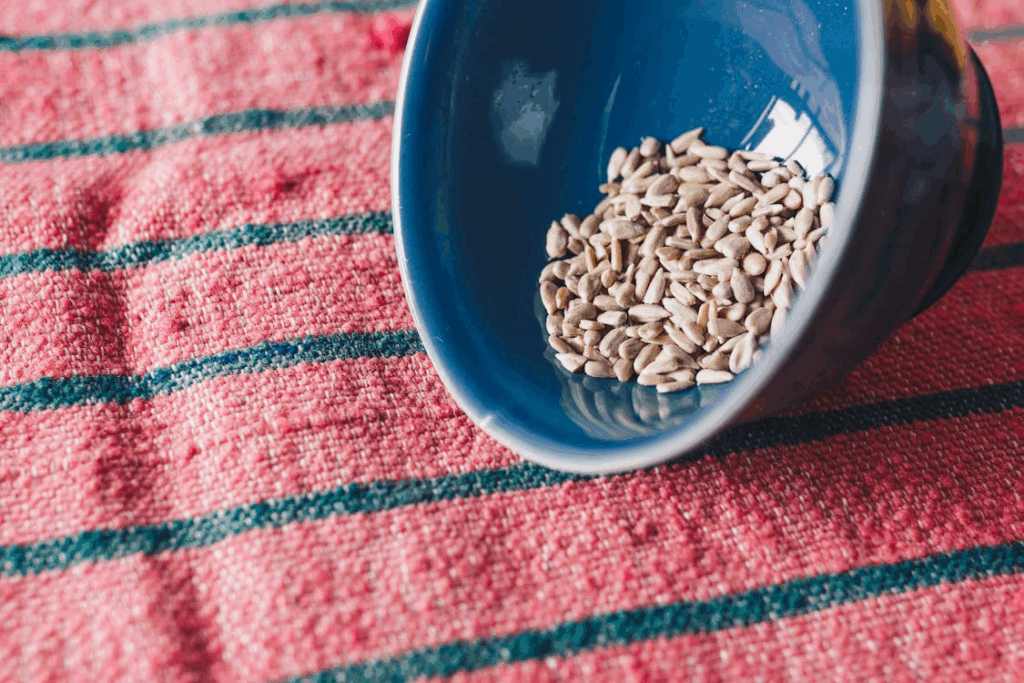
Research from Loma Linda University stated that people who regularly consume seeds perform better on cognitive tests than those who do not. Just one to two tablespoons of seeds daily can enhance memory, processing speed, and overall brain function. Their combination of healthy fats, protein, and fiber supports steady energy release, preventing blood sugar spikes that can impair cognition. Seeds’ mild flavors make them easy to add to meals-sprinkle flaxseed on oatmeal, toss pumpkin seeds into salads, or stir chia seeds into yogurt or smoothies for a brain boost to your diet.
Research Insights and Considerations on Seeds

While observational studies consistently link seed consumption with better cognitive outcomes, some experts note that the bioavailability of certain seed nutrients can vary depending on preparation methods. However, the current body of evidence positions seeds as a simple, accessible, and effective food choice for supporting brain health and reducing dementia risk.
8. Broccoli

Broccoli is a vibrant green cruciferous vegetable (in the same family as cabbage) that traces its origins to the Mediterranean, where farmers began cultivating it from wild cabbage over 2,000 years ago. Across the globe, broccoli is currently a staple in diets around the world. Its mild, slightly bitter flavor and crisp texture make it a favorite for steaming, roasting, stir-frying, or eating raw. People add broccoli to salads, soups, casseroles, and even enjoy it as a crunchy snack with dips. Its year-round availability and affordability make it easily available to families and the less privileged.
How Broccoli Helps Reduce Dementia Risk
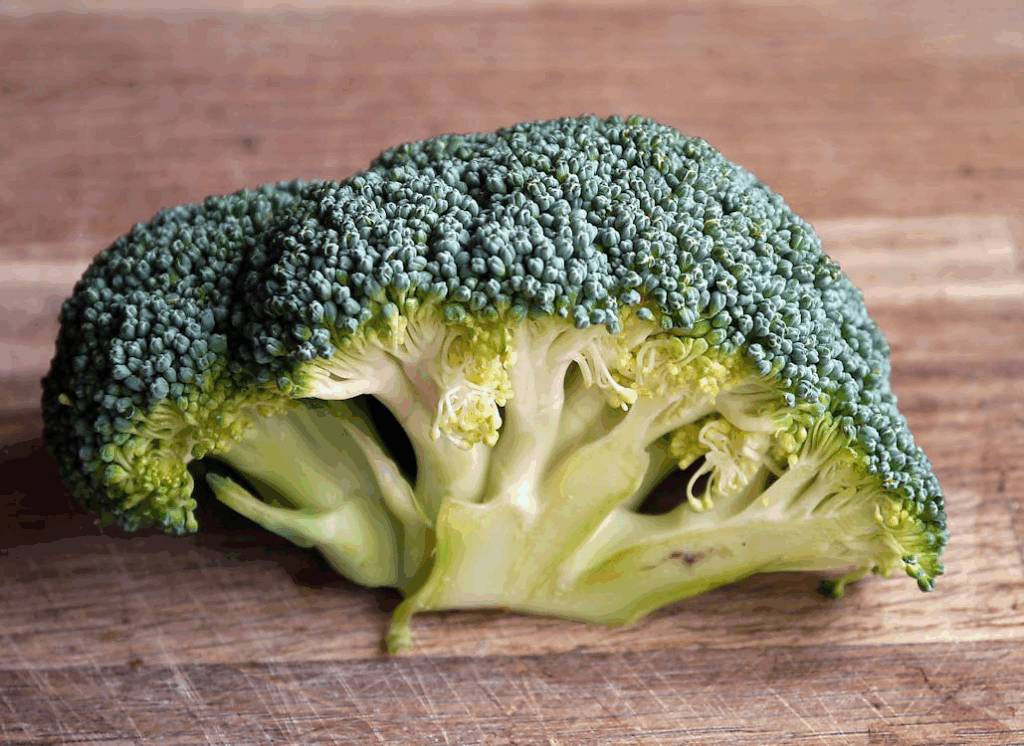
Broccoli peaks out for its high concentration of sulforaphane, a phytochemical that activates the brain’s detoxification pathways. Sulforaphane triggers protective genes, helping shield brain cells from oxidative stress and free radical damage. Broccoli also boasts impressive levels of vitamin C, which further protects neurons from age-related damage. Its unique mix of fiber, B vitamins, and carotenoids supports overall brain health by reducing inflammation and maintaining healthy blood vessels that supply the brain.
Cognitive Benefits of Including Broccoli in Your Diet

Including broccoli in your diet at least twice a week can provide substantial protection for your brain. Studies show that sulforaphane not only protects neurons but may also help repair cognitive function after injury. This suggests broccoli’s benefits go beyond simple prevention and extend to supporting brain recovery.
Its combination of antioxidants, vitamins, and anti-inflammatory compounds collectively helps slow cognitive aging and may lower the risk of neurodegenerative diseases like Alzheimer’s. Many neuroscientists now rank cruciferous vegetables, including broccoli, among the most valuable foods for long-term brain health.
Research Insights and Considerations on Broccoli

Researchers agree that eating broccoli as part of a balanced diet rich in various vegetables yields the best results for cognitive health. Cooking methods matter-light steaming preserves more sulforaphane and vitamin C than boiling. Although more clinical trials are needed to confirm broccoli’s direct impact on dementia risk, the current evidence strongly supports its role as a brain-healthy food.
9. Dark Chocolate (70%+ Cocoa)

Dark chocolate with 70% or higher cocoa content is made from roasted and ground cacao beans, native to the tropical regions of Central and South America. Historically consumed by ancient civilizations like the Aztecs and Mayans, cacao has evolved into a popular treat globally.
Unlike milk chocolate, dark chocolate contains less sugar and more concentrated cocoa solids, which provide its characteristic rich flavor and health-promoting compounds. People consume it as bars, baking chips, or cocoa powder, incorporating it into desserts, beverages, and snacks.
How Dark Chocolate Helps Reduce Dementia Risk

Dark chocolate is rich in flavonoids, particularly flavanols, which improve brain health by increasing blood flow and stimulating the growth of new neurons. These compounds cross the blood-brain barrier, protecting neurons from oxidative damage and inflammation.
Additionally, the caffeine and theobromine in dark chocolate provide mild stimulation that enhances alertness and concentration, supporting short-term cognitive function. The higher the cocoa percentage, the greater the flavonoid content and potential brain benefits.
Read More: Do Statins Help Prevent Dementia – Or Raise the Risk?
Cognitive Benefits of Including Dark Chocolate in Your Diet

Consuming moderate amounts of high cocoa content dark chocolate can boost memory, attention, and cognitive performance. A study from Columbia University showed that older adults who consumed flavanol-rich cocoa daily for three months experienced improved memory and increased blood flow to the hippocampus, the brain region important for learning and memory. This intervention even reversed some age-related memory decline in participants. Incorporating about one oz. of dark chocolate a few times per week can provide these cognitive benefits without excessive sugar or calories.
Research Insights and Considerations on Dark Chocolate

While research supports dark chocolate’s brain benefits, consuming it in moderation is important due to its calorie density and potential added sugars in some products. Not all chocolate bars contain the same flavonoid levels as processing methods can reduce these beneficial compounds. Moreover, individual responses may vary, and larger-scale, long-term clinical trials are needed to fully understand dark chocolate’s role in dementia prevention.
10. Whole Grains
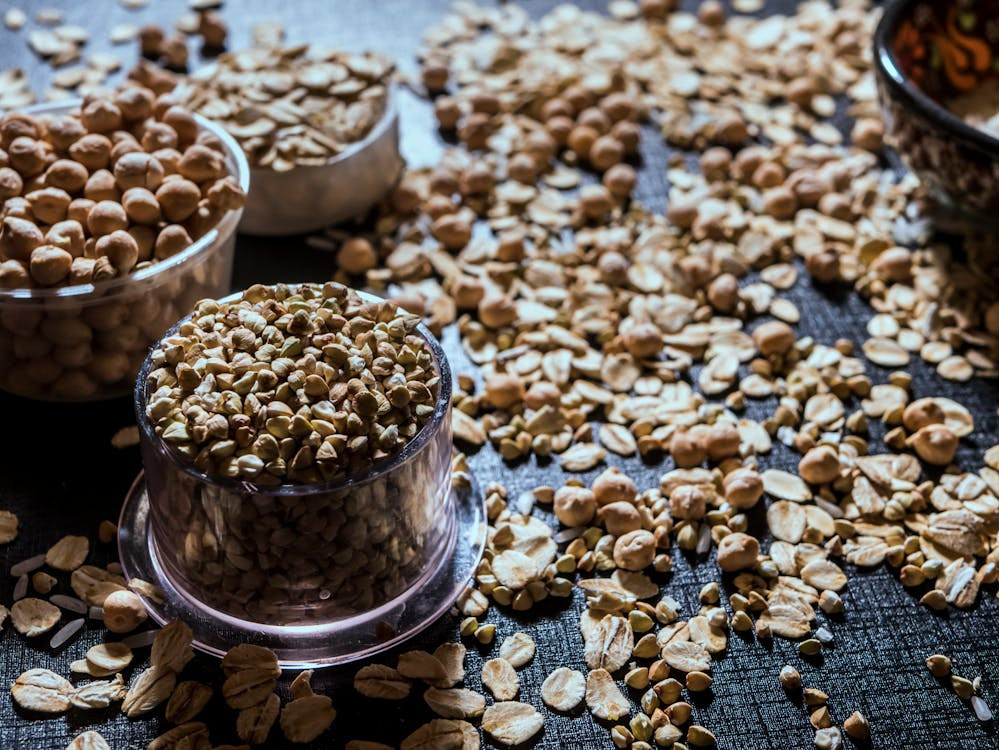
Whole grains like oats, quinoa, and brown rice have been a staple food for humans for millennia. Oats originated in Europe and North America, quinoa comes from the Andean region of South America, and brown rice has been cultivated across Asia for millennia. Unlike refined grains, whole grains retain their bran, germ, and endosperm, preserving fiber, vitamins, and minerals. People use whole grains in a variety of ways: oats for breakfast porridges, quinoa as a versatile grain substitute in salads and bowls, and brown rice as a staple side dish.
How Whole Grains Help Reduce Dementia Risk
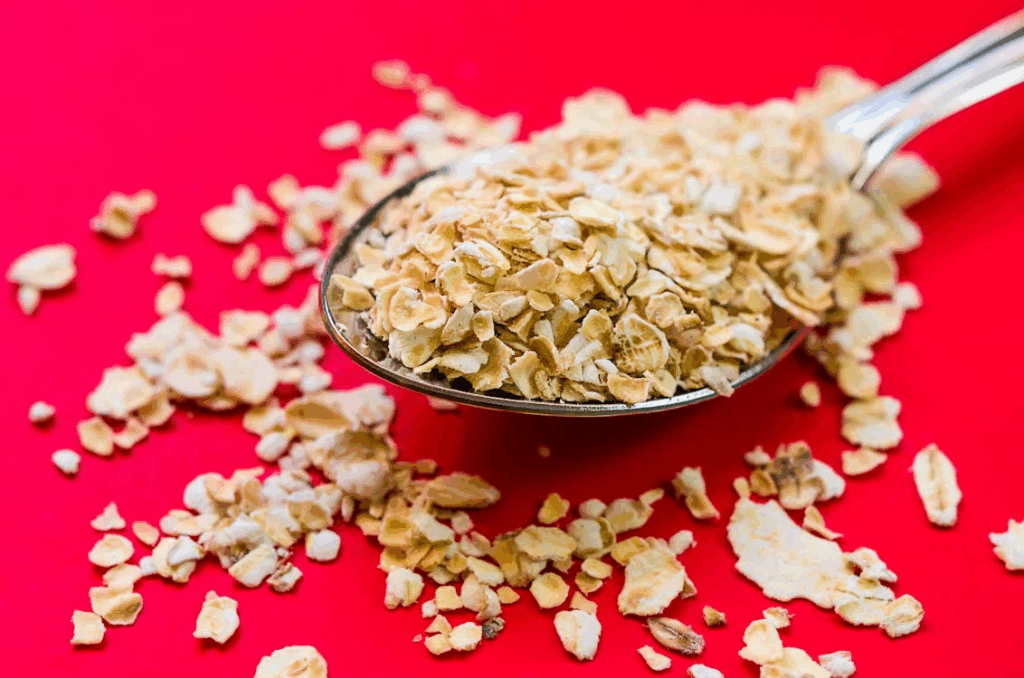
Whole grains provide complex carbohydrates that release glucose slowly, stabilizing blood sugar levels and preventing energy crashes that could impair brain function. They contain fiber, antioxidants, and B vitamins that reduce inflammation and oxidative stress. The vitamin E, B vitamins, and magnesium in whole grains support neural connections essential for memory and learning. Their high fiber content promotes cardiovascular health, ensuring steady blood flow and oxygen delivery to the brain.
Cognitive Benefits of Including Whole Grains in Your Diet
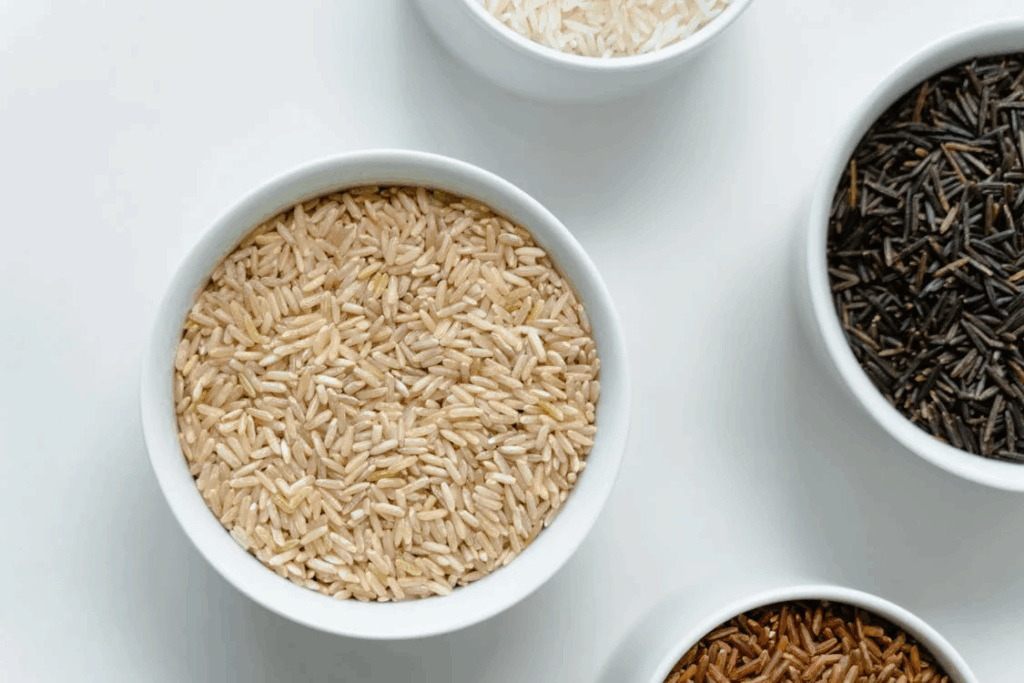
Regularly swapping refined grains for whole grains offers greater protection against cognitive decline. Studies show that higher whole grain intake comes with better cognitive function and a reduced risk of dementia. Starting your day with oatmeal topped with berries and nuts creates a complete brain-supporting meal, while cooking extra brown rice or quinoa allows quick, nutritious meals throughout the week. The combination of steady energy release, antioxidants, and vitamins in whole grains helps maintain mental clarity, focus, and memory as you age.
Research Insights and Considerations on Whole Grains

While most evidence comes from observational studies, the consistent association between whole grain consumption and improved cognitive outcomes is compelling. Researchers note that whole grains form a key part of brain-healthy dietary patterns, such as the Mediterranean and DASH diets. Choosing less processed whole grains and preparing them with minimal added sugars or fats maximizes their benefits.
Food as Your Brain’s Best Defense

While no single food or supplement can guarantee dementia prevention, a diet rich in these 10 superfoods offers powerful protection for your brain. They work together to reduce inflammation, clear harmful proteins, and support the growth and repair of brain cells. By making these foods a staple in your daily meals, you can begin to mitigate the development of dementia-related diseases and ultimately promote better brain health.
Disclaimer: This information is not intended to be a substitute for professional medical advice, diagnosis or treatment and is for information only. Always seek the advice of your physician or another qualified health provider with any questions about your medical condition and/or current medication. Do not disregard professional medical advice or delay seeking advice or treatment because of something you have read here.
Read More: 17 Simple Ways to Protect Yourself from Stroke, Dementia, and Depression
